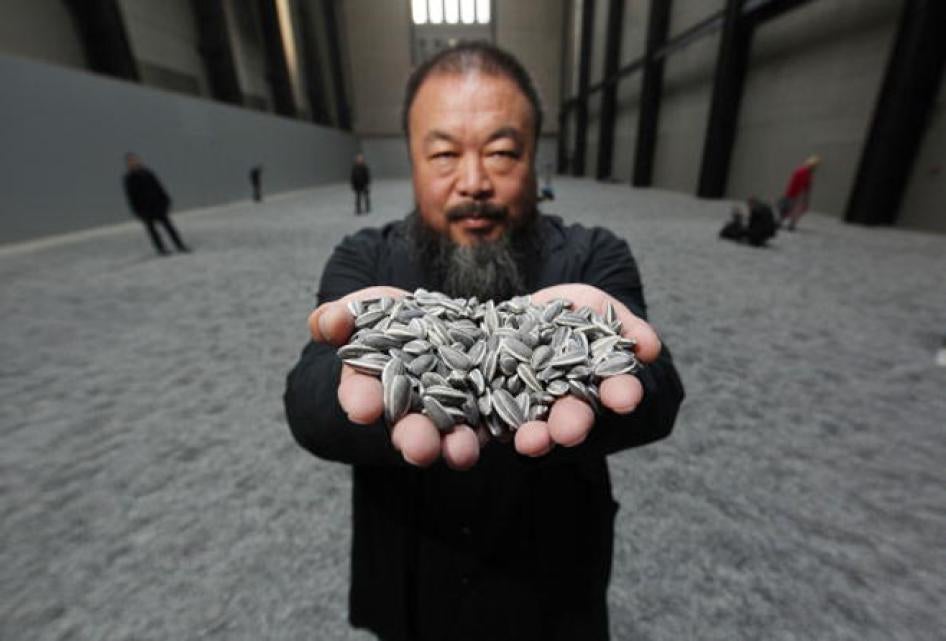Update: On July 31, UK Home Secretary Theresa May announced that the initial decision to issue a 20-day visa to Ai would be reversed, and that he would be issued the six-month visa for which he originally applied.
In a gesture of either craven capitulation to Beijing or inexcusable ignorance, UK immigration officials have denied a six-month business visa to the Chinese artist and activist Ai Weiwei on the grounds that he failed to declare “a criminal conviction in China.”
Instead, he has been granted only 20 days’ stay through late September. It is hard to escape the conclusion that this decision is political, linked to Chinese President Xi Jinping scheduled visit to the UK shortly thereafter.
It’s not clear what the UK officials are referring to, given that Ai Weiwei has no criminal conviction in China. According to Ai, the UK Visas and Immigration Department referred in their correspondence with him to “news about Ai's secret detention by the Chinese authorities in 2011 and the tax case for Fake Design.”
When reached by the press, the spokesperson for the Home Office failed to address the controversy, insisting that Ai’s application has been “considered… in line with the relevant legislation.” Presumably coincidentally, this is a phrase Chinese officials frequently use to justify serious human rights violations.
If the UK Visas and Immigration Department has any other evidence to bolster its decision over Ai’s visa, it should show it now. Otherwise, it should immediately reverse this decision, based as it is on a false premise. Ai and his lawyer are both adamant he does not have any criminal convictions, and the Chinese authorities have never contradicted him.
The UK welcomes scores of senior Chinese government officials - many of them implicated in human rights abuses. To deny comparable access to a peaceful critic of Chinese autocracy and repression, and do so on the basis of flawed Chinese judicial procedures, is inexcusable.










